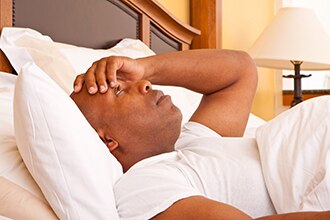Symptoms & Causes of Erectile Dysfunction
What are the symptoms of erectile dysfunction?
 ED may be a symptom of another health problem.
ED may be a symptom of another health problem.
Symptoms of erectile dysfunction (ED) include
- getting an erection sometimes, but not every time you want to have sex
- getting an erection, but it doesn't last long enough for sex
- being unable to get an erection at any time
ED may be a symptom of another health problem.
What causes ED?
ED can have different causes. Some diseases or health conditions that affect your blood vessels, nerves, or hormones can lead to ED. Also, certain medicines, mental or emotional issues, and lifestyle behaviors may lead to ED.
Diseases and conditions
The most common diseases and conditions that can lead to ED include
- diabetes
- chronic health conditions, such as chronic kidney disease, obesity and overweight, and chronic obstructive pulmonary disease
- heart and blood vessel diseases, such as atherosclerosis, high blood pressure, and stroke
- hormone issues, such as low testosterone and thyroid imbalance
- nerve damage or disorders, such as multiple sclerosis, spinal cord injuries, and damage from pelvic surgery
- problems of the male reproductive system, such as enlarged prostate and penile curvature, also called Peyronie’s disease
Medicines
ED can be a side effect of many common prescription and over-the-counter medicines, such as
- antidepressants
- appetite suppressants, or medicines that make you less hungry
- antihistamines, or medicines for allergies or heartburn
- blood pressure medicines and diuretics, or water pills
- chemotherapy and hormone medicines
- some pain relievers, such as nonsteroidal anti-inflammatory drugs, codeine, and oxycodone
- sedatives, or medicines that make you calm or sleepy
- ulcer medicines
Mental health or emotional issues
Some mental health or emotional issues can either cause ED or make it worse, including
- anxiety, depression, or stress
- feeling isolated or lonely
- low self-esteem, lack of confidence, or negative body image
Lifestyle behaviors
Certain lifestyle behaviors may contribute to ED, including
- not getting enough physical activity
- drinking too much alcohol
- smoking cigarettes
- using recreational and illicit drugs
This content is provided as a service of the National Institute of Diabetes and Digestive and Kidney Diseases
(NIDDK), part of the National Institutes of Health. NIDDK translates and disseminates research findings to increase knowledge and understanding about health and disease among patients, health professionals, and the public. Content produced by NIDDK is carefully reviewed by NIDDK scientists and other experts.

